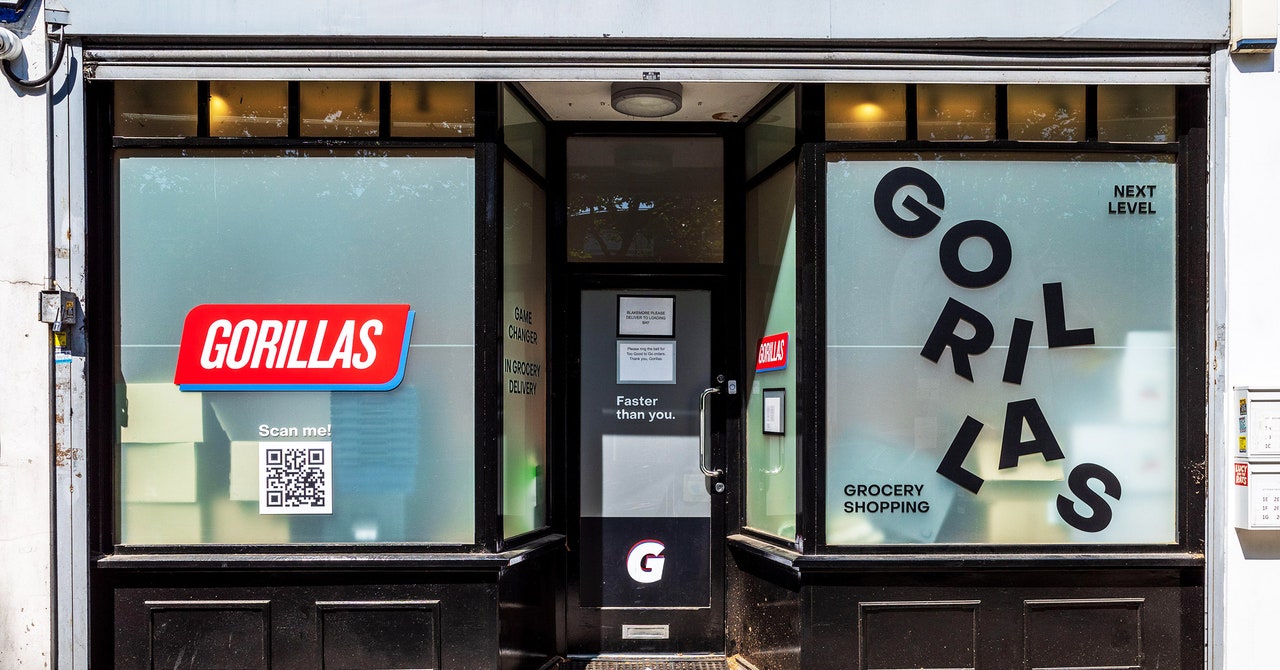Gorillas isn’t the only fast delivery app affected by these issues. “Rising inflation and the deteriorating macroeconomic outlook around the world have prompted all companies, especially in the tech industry and also Getir, to adapt to the new environment,” said Turancan Salur, general manager of Getir. in Europe.
Companies like Gorillas and Getir planned to burn huge amounts of money by aggressively buying up market share, Gevaers says. “Then at some point it is not your company but your customer base that becomes interesting.” Getir has proven its business model works, Salur says, as many of its stores in the company’s first Turkish market are profitable.
Gorilla workers in Belgium who lose their jobs are covered by the country’s labor rules, which grant full-time workers at least four months’ wages as compensation. Some office workers have been hired by a Belgian food delivery company, Efarmz, which, according to a company statement, has purchased Gorillas’ “local fast trade business intelligence”. The company has not released any more details about the deal.
In Spain, Gorillas employees nervously watch the fate of their Belgian colleagues. As in Belgium before the layoffs, they have been told that the Spanish subsidiary has a limited amount of time to find a buyer or investor. About 300 workers in the country have received official notice that their layoff is imminent.
The app will continue to work, but management is encouraging staff to look for new jobs, according to a current employee, who works in the Madrid office and spoke on condition of anonymity. “Warehouses are not getting any new products,” they say, while the number of orders per warehouse has fallen to about 20 per day. “They’re just waiting for them to run out of stock.” Spanish labor laws are less generous than Belgium’s. Gorilla workers laid off there are entitled to a minimum of 20 days’ wages per year worked. Gorillas declined to comment on the agreements with individual employees.
Gorillas in Denmark also await their fate as the branch struggles to find a buyer or cash injection. According to an employee who asked to remain anonymous, the past year has seen it struggle to meet sales targets, with warehouses receiving only 70 to 80 orders per day. There too, the districts suffered from staffing problems, and the internal Slack channel regularly pleaded with managers because not a single bicycle courier showed up at work, they add. Gorillas declined to comment on what it called “the specifics of his day-to-day operations.”
Rider groups in Belgium fear Gorillas’ departure will create the impression that gig companies that hire their permanent staff are not viable. “Many of us are going back to work for platforms like Uber Eats,” said Camille Peteers, a rider at the Brussels-based group Couriers Collective, adding that Uber Eats doesn’t hire drivers as employees. “At a time when some have announced they will be exiting the market, Deliveroo strongly believes in fast trade and fast deliveries in Belgium,” said Rodolphe Van Nuffel, a spokesperson for Deliveroo Belgium. The company’s drivers in the country are self-employed.
Gorillas says it believes its business will be profitable in about three months and the company will be profitable at the group level in about a year. But for analysts, Gorillas’ departure calls into question something more fundamental: that the current delivery app economy is flawed. As these companies race to dominate major cities, they have taken some questionable shortcuts, said Marc-André Kamel, head of global retail practice at consultancy Bain & Company. “They have ignored the laws of gravity and built companies with no clear path to profitable profitability,” he says. “They have promised ultra convenience, but customer satisfaction is very poor in most countries.” The 10- or 15-minute delivery claim sounds catchy in terms of marketing, he adds, but it creates a huge expectation of service that is often disappointed. In December, Gorillas quietly removed his promise to deliver within 10 minutes from his website.
“The market has been shaking up all these start-ups lately,” Kamel says, “to remind them that they have to find their way to profitability and become better retailers, who make customers happy, if they are to survive. ”

